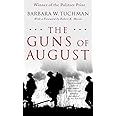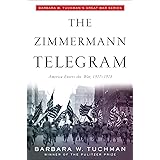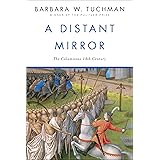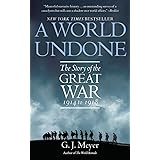
Enjoy fast, free delivery, exclusive deals, and award-winning movies & TV shows with Prime
Try Prime
and start saving today with fast, free delivery
Amazon Prime includes:
Fast, FREE Delivery is available to Prime members. To join, select "Try Amazon Prime and start saving today with Fast, FREE Delivery" below the Add to Cart button.
Amazon Prime members enjoy:- Cardmembers earn 5% Back at Amazon.com with a Prime Credit Card.
- Unlimited Free Two-Day Delivery
- Streaming of thousands of movies and TV shows with limited ads on Prime Video.
- A Kindle book to borrow for free each month - with no due dates
- Listen to over 2 million songs and hundreds of playlists
- Unlimited photo storage with anywhere access
Important: Your credit card will NOT be charged when you start your free trial or if you cancel during the trial period. If you're happy with Amazon Prime, do nothing. At the end of the free trial, your membership will automatically upgrade to a monthly membership.
Buy new:
-10% $8.99$8.99
Ships from: Amazon.com Sold by: Amazon.com
Save with Used - Acceptable
$7.50$7.50
Ships from: Amazon Sold by: NWFL Books

Download the free Kindle app and start reading Kindle books instantly on your smartphone, tablet, or computer - no Kindle device required.
Read instantly on your browser with Kindle for Web.
Using your mobile phone camera - scan the code below and download the Kindle app.

OK
 Audible sample Sample
Audible sample Sample 


The Guns of August: The Pulitzer Prize-Winning Classic About the Outbreak of World War I Mass Market Paperback – August 3, 2004
Purchase options and add-ons
Selected by the Modern Library as one of the 100 best nonfiction books of all time
In this landmark account, renowned historian Barbara W. Tuchman re-creates the first month of World War I: thirty days in the summer of 1914 that determined the course of the conflict, the century, and ultimately our present world. Beginning with the funeral of Edward VII, Tuchman traces each step that led to the inevitable clash. And inevitable it was, with all sides plotting their war for a generation. Dizzyingly comprehensive and spectacularly portrayed with her famous talent for evoking the characters of the war’s key players, Tuchman’s magnum opus is a classic for the ages.
The Proud Tower, the Pulitzer Prize–winning The Guns of August, and The Zimmermann Telegram comprise Barbara W. Tuchman’s classic histories of the First World War era
- Print length640 pages
- LanguageEnglish
- PublisherPresidio Press
- Publication dateAugust 3, 2004
- Dimensions4.2 x 1.02 x 6.83 inches
- ISBN-100345476093
- ISBN-13978-0345476098
- Lexile measure1350L
The Amazon Book Review
Book recommendations, author interviews, editors' picks, and more. Read it now.
Frequently bought together

Similar items that may ship from close to you
 One constant among the elements of 1914—as of any era—was the disposition of everyone on all sides not to prepare for the harder alternative, not to act upon what they suspected to be true.Highlighted by 2,773 Kindle readers
One constant among the elements of 1914—as of any era—was the disposition of everyone on all sides not to prepare for the harder alternative, not to act upon what they suspected to be true.Highlighted by 2,773 Kindle readers Character is fate, the Greeks believed. A hundred years of German philosophy went into the making of this decision in which the seed of self-destruction lay embedded, waiting for its hour.Highlighted by 2,531 Kindle readers
Character is fate, the Greeks believed. A hundred years of German philosophy went into the making of this decision in which the seed of self-destruction lay embedded, waiting for its hour.Highlighted by 2,531 Kindle readers “The lamps are going out all over Europe; we shall not see them lit again in our lifetime.”Highlighted by 2,519 Kindle readers
“The lamps are going out all over Europe; we shall not see them lit again in our lifetime.”Highlighted by 2,519 Kindle readers Germans had imbibed from 1870 the lesson that arms and war were the sole source of German greatness.Highlighted by 2,063 Kindle readers
Germans had imbibed from 1870 the lesson that arms and war were the sole source of German greatness.Highlighted by 2,063 Kindle readers The impetus of existing plans is always stronger than the impulse to change.Highlighted by 1,593 Kindle readers
The impetus of existing plans is always stronger than the impulse to change.Highlighted by 1,593 Kindle readers
Editorial Reviews
Review
“More dramatic than fiction . . . a magnificent narrative—beautifully organized, elegantly phrased, skillfully paced and sustained.”—Chicago Tribune
“A fine demonstration that with sufficient art rather specialized history can be raised to the level of literature.”—The New York Times
“[The Guns of August] has a vitality that transcends its narrative virtues, which are considerable, and its feel for characterizations, which is excellent.”—The Wall Street Journal
About the Author
Excerpt. © Reprinted by permission. All rights reserved.
A Funeral
So gorgeous was the spectacle on the May morning of 1910 when nine kings rode in the funeral of Edward VII of England that the crowd, waiting in hushed and black-clad awe, could not keep back gasps of admiration. In scarlet and blue and green and purple, three by three the sovereigns rode through the palace gates, with plumed helmets, gold braid, crimson sashes, and jeweled orders flashing in the sun. After them came five heirs apparent, forty more imperial or royal highnesses, seven queens—four dowager and three regnant—and a scattering of special ambassadors from uncrowned countries. Together they represented seventy nations in the greatest assemblage of royalty and rank ever gathered in one place and, of its kind, the last. The muffled tongue of Big Ben tolled nine by the clock as the cortege left the palace, but on history’s clock it was sunset, and the sun of the old world was setting in a dying blaze of splendor never to be seen again.
In the center of the front row rode the new king, George V, flanked on his left by the Duke of Connaught, the late king’s only surviving brother, and on his right by a personage to whom, acknowledged The Times, “belongs the first place among all the foreign mourners,” who “even when relations are most strained has never lost his popularity amongst us”—William II, the German Emperor. Mounted on a gray horse, wearing the scarlet uniform of a British Field Marshal, carrying the baton of that rank, the Kaiser had composed his features behind the famous upturned mustache in an expression “grave even to severity.” Of the several emotions churning his susceptible breast, some hints exist in his letters. “I am proud to call this place my home and to be a member of this royal family,” he wrote home after spending the night in Windsor Castle in the former apartments of his mother. Sentiment and nostalgia induced by these melancholy occasions with his English relatives jostled with pride in his supremacy among the assembled potentates and with a fierce relish in the disappearance of his uncle from the European scene. He had come to bury Edward his bane; Edward the arch plotter, as William conceived it, of Germany’s encirclement; Edward his mother’s brother whom he could neither bully nor impress, whose fat figure cast a shadow between Germany and the sun. “He is Satan. You cannot imagine what a Satan he is!”
This verdict, announced by the Kaiser before a dinner of three hundred guests in Berlin in 1907, was occasioned by one of Edward’s continental tours undertaken with clearly diabolical designs at encirclement. He had spent a provocative week in Paris, visited for no good reason the King of Spain (who had just married his niece), and finished with a visit to the King of Italy with obvious intent to seduce him from his Triple Alliance with Germany and Austria. The Kaiser, possessor of the least inhibited tongue in Europe, had worked himself into a frenzy ending in another of those comments that had periodically over the past twenty years of his reign shattered the nerves of diplomats.
Happily the Encircler was now dead and replaced by George who, the Kaiser told Theodore Roosevelt a few days before the funeral, was “a very nice boy” (of forty-five, six years younger than the Kaiser). “He is a thorough Englishman and hates all foreigners but I do not mind that as long as he does not hate Germans more than other foreigners.” Alongside George, William now rode confidently, saluting as he passed the regimental colors of the 1st Royal Dragoons of which he was honorary colonel. Once he had distributed photographs of himself wearing their uniform with the Delphic inscription written above his signature, “I bide my time.” Today his time had come; he was supreme in Europe.
Behind him rode the widowed Queen Alexandra’s two brothers, King Frederick of Denmark and King George of the Hellenes; her nephew, King Haakon of Norway; and three kings who were to lose their thrones: Alfonso of Spain, Manuel of Portugal and, wearing a silk turban, King Ferdinand of Bulgaria who annoyed his fellow sovereigns by calling himself Czar and kept in a chest a Byzantine Emperor’s full regalia, acquired from a theatrical costumer, against the day when he should reassemble the Byzantine dominions beneath his scepter.
Dazzled by these “splendidly mounted princes,” as The Times called them, few observers had eyes for the ninth king, the only one among them who was to achieve greatness as a man. Despite his great height and perfect horsemanship, Albert, King of the Belgians, who disliked the pomp of royal ceremony, contrived in that company to look both embarrassed and absentminded. He was then thirty-five and had been on the throne barely a year. In later years when his face became known to the world as a symbol of heroism and tragedy, it still always wore that abstracted look, as if his mind were on something else.
The future source of tragedy, tall, corpulent, and corseted, with green plumes waving from his helmet, Archduke Franz Ferdinand of Austria, heir of the old Emperor Franz Josef, rode on Albert’s right, and on his left another scion who would never reach his throne, Prince Yussuf, heir of the Sultan of Turkey. After the kings came the royal highnesses: Prince Fushimi, brother of the Emperor of Japan; Grand Duke Michael, brother of the Czar of Russia; the Duke of Aosta in bright blue with green plumes, brother of the King of Italy; Prince Carl, brother of the King of Sweden; Prince Henry, consort of the Queen of Holland; and the Crown Princes of Serbia, Rumania, and Montenegro. The last named, Prince Danilo, “an amiable, extremely handsome young man of delightful manners,” resembled the Merry Widow’s lover in more than name, for, to the consternation of British functionaries, he had arrived the night before accompanied by a “charming young lady of great personal attractions” whom he introduced as his wife’s lady in waiting with the explanation that she had come to London to do some shopping.
A regiment of minor German royalty followed: rulers of Mecklenburg-Schwerin, Mecklenburg-Strelitz, Waldeck-Pyrmont, Saxe-Coburg Gotha, of Saxony, Hesse, Württemberg, Baden, and Bavaria, of whom the last, Crown Prince Rupprecht, was soon to lead a German army in battle. There were a Prince of Siam, a Prince of Persia, five princes of the former French royal house of Orléans, a brother of the Khedive of Egypt wearing a gold-tasseled fez, Prince Tsia-tao of China in an embroidered light-blue gown whose ancient dynasty had two more years to run, and the Kaiser’s brother, Prince Henry of Prussia, representing the German Navy, of which he was Commander in Chief. Amid all this magnificence were three civilian-coated gentlemen, M. Gaston-Carlin of Switzerland, M. Pichon, Foreign Minister of France, and former President Theodore Roosevelt, special envoy of the United States.
Edward, the object of this unprecedented gathering of nations, was often called the “Uncle of Europe,” a title which, insofar as Europe’s ruling houses were meant, could be taken literally. He was the uncle not only of Kaiser Wilhelm but also, through his wife’s sister, the Dowager Empress Marie of Russia, of Czar Nicolas II. His own niece Alix was the Czarina; his daughter Maud was Queen of Norway; another niece, Ena, was Queen of Spain; a third niece, Marie, was soon to be Queen of Rumania. The Danish family of his wife, besides occupying the throne of Denmark, had mothered the Czar of Russia and supplied kings to Greece and Norway. Other relatives, the progeny at various removes of Queen Victoria’s nine sons and daughters, were scattered in abundance throughout the courts of Europe.
Yet not family feeling alone nor even the suddenness and shock of Edward’s death—for to public knowledge he had been ill one day and dead the next—accounted for the unexpected flood of condolences at his passing. It was in fact a tribute to Edward’s great gifts as a sociable king which had proved invaluable to his country. In the nine short years of his reign England’s splendid isolation had given way, under pressure, to a series of “understandings” or attachments, but not quite alliances—for England dislikes the definitive—with two old enemies, France and Russia, and one promising new power, Japan. The resulting shift in balance registered itself around the world and affected every state’s relations with every other. Though Edward neither initiated nor influenced his country’s policy, his personal diplomacy helped to make the change possible.
Taken as a child to visit France, he had said to Napoleon III: “You have a nice country. I would like to be your son.” This preference for things French, in contrast to or perhaps in protest against his mother’s for the Germanic, lasted, and after her death was put to use. When England, growing edgy over the challenge implicit in Germany’s Naval Program of 1900, decided to patch up old quarrels with France, Edward’s talents as Roi Charmeur smoothed the way. In 1903 he went to Paris, disregarding advice that an official state visit would find a cold welcome. On his arrival the crowds were sullen and silent except for a few taunting cries of “Vivent les Boers!” and “Vive Fashoda!” which the King ignored. To a worried aide who muttered, “The French don’t like us,” he replied, “Why should they?” and continued bowing and smiling from his carriage.
Product details
- Publisher : Presidio Press (August 3, 2004)
- Language : English
- Mass Market Paperback : 640 pages
- ISBN-10 : 0345476093
- ISBN-13 : 978-0345476098
- Lexile measure : 1350L
- Item Weight : 10.4 ounces
- Dimensions : 4.2 x 1.02 x 6.83 inches
- Best Sellers Rank: #8,202 in Books (See Top 100 in Books)
- #2 in History Encyclopedias
- #9 in World War I History (Books)
- #157 in World History (Books)
- Customer Reviews:
About the author

Barbara Wertheim Tuchman (/ˈtʌkmən/; January 30, 1912 – February 6, 1989) was an American historian and author. She won the Pulitzer Prize twice, for The Guns of August (1962), a best-selling history of the prelude to and the first month of World War I, and Stilwell and the American Experience in China (1971), a biography of General Joseph Stilwell.
Tuchman focused on writing popular history.
Bio from Wikipedia, the free encyclopedia.
Customer reviews
Customer Reviews, including Product Star Ratings help customers to learn more about the product and decide whether it is the right product for them.
To calculate the overall star rating and percentage breakdown by star, we don’t use a simple average. Instead, our system considers things like how recent a review is and if the reviewer bought the item on Amazon. It also analyzed reviews to verify trustworthiness.
Learn more how customers reviews work on AmazonReviews with images
-
Top reviews
Top reviews from the United States
There was a problem filtering reviews right now. Please try again later.
Isn’t the above describing Russia’s invasion of Ukraine in 2022?
No, it is not. It depicts the invasion of Germany into neutral Belgium in August 1914, the month of the beginning of World War I. It is a tragic illustration of Mark Twain’s famous quote: “History doesn’t repeat itself, but it often rhymes.”
“The Guns of August” tells the background that led to the First World War, the events and battles that occurred in the month of August 1914. The narrative stops at the conclusion of the Battle of Marne, which destroyed any hope of a short war and laid the foundation for four years of one of the most brutal conflicts in history.
The background included the formation of the Triple Entente of France, Russia, and Britain, and the Triple Alliance of Germany, Austria-Hungary, and Italy. German strategy in 1914 was to first defeat France, then shift its forces to the East and knock out Russia, commonly known as the Schlieffen Plan. In France, there was Plan 17, a plan for the mobilization, concentration and deployment of the French armies and it made possible an invasion of Germany or Belgium or both before Germany completed the mobilization of its reserves and simultaneous to an allied Russian offensive.
The events and battles included the escape of the German Battlecruiser Goeben, the invasion of Belgium and the Flames of Louvain, the Battle of the Frontiers, the Battle of Tannenberg, Von Klick’s turn and the Battle of Marne.
One of the interesting features of the book was the brief introductions of the various players. When a personality first appeared, it was accompanied by a short but lively description. Some examples:
General Joseph Joffre, French Generalissimo
“Massive and paunchy in his baggy uniform, with a fleshy face adorned by a heavy, nearly white mustache and bushy eyebrows to match, with a clear youthful skin, calm blue eyes and a candid, tranquil gaze, Joffre looked like Santa Claus and gave an impression of benevolence and naivete, qualities not noticeably part of his character.”
Charles Lanrezac, French General, Commander of the 5th Army
“Formerly a distinguished staff college lecturer. Because of his keen intelligence, Lanresac was considered a star at the General Staff, which forgave him his caustic manner and his tendency to bad temper and impolite language for the sake of the clarity, brilliance, and logic of his lectures.”
Alexander Von Kluck, German General, Commands First Army on Belgian Frontier
“He was tall and majestic with a scarred, clean-shaven face, hard features and a frightening glace. In his right hand he carried a soldier’s rifle and his left rested on the butt of a revolver…No one-seemed to dare to approach him and indeed he wore a terrible air, invoking the image of Attila”
Sir John French, Commander of the British Expedition Force
“Untrained to study and with a mind closed to books, at least after his early successes in action, French was less renowned for mental ability than for irritability…..Like his vis-à-vis across the Channel, French was an unintellectual soldier with the fundamental difference that whereas Joffre’s outstanding qualify was solidity, French’s was a peculiar responsiveness to pressure, people, and prejudices. Joffre was imperturbable in all weathers; Sir John alternated between extremes of aggressiveness in good times and of depression in bad.”
It was no surprise from these cast of main characters that conflicts were bound to happen. Thus. the first meeting between the Commander of the British Expedition Force, Sir John, and General Lanrezac, ended in each misunderstanding and despising the other. General Lanresac always had criticisms on his boss General Joffre‘s orders, which were not always promptly obeyed. Eventually, General Lanrezac was relieved of his command by General Joffre, although history judged that the views of General Lanrezac were almost always correct. In recognition of his initially unappreciated prudence in the opening month of the war that helped save France, he was made an officer of the Légion d'honneur in July 1917, awarded the Grand Cross of the Order of the Crown by Belgium in 1923, and awarded the Grand Cross of the Légion d'honneur in 1924.
A somewhat similar but less fortunate episode happened in the career of Rear Admiral Ernest Troubridge. The Rear Admiral, in charge of several cruisers in pursuit of Germany’s battlecruiser Goeben in the Mediterranean, did not engage Goeben when it had the chance to do so on August 7, because he judged that his ships were no match in both speed and gun range with the Goeben and therefore, according to the order from the British Admiralty not to engage with superior force, he obliged. His decision almost certainly saved his ships and men from watery graves.
Troubridge was court martialed for the decision. Although vindicated, his reputation was damaged. He remained in the Royal Navy through the remainder of World War I. He went on to serve in various staff positions but never again held a seagoing command. Ultimately promoted to full admiral, Troubridge retired from the Royal Navy in 1924 and died two years later. Sadly, despite his achievements, he is too often remembered only as “the man who let Goeben escape.”
Sir John and the British Expedition Force appeared poorly in their portrays in the book. Sir John’s insistence, as well as that of the British, to retreat instead of joining France in the attack, almost resulted in their not taking part in the Battle of Marne, the Battle that halted Germany’s advance in France. Finally, after many fruitless efforts, the speech by General Joffre calling the honor of England into question apparently did the job of awakening Sir John from his folly.
It has been said that The Guns of August helped save the world from nuclear conflict during the 1962 Cuban Crisis. When President Kennedy’s advisors urged him to strike the Russian missile sites in Cuba, he refrained from doing so because of what he read in The Guns of August that, once war action was initiated, it could not be stopped.
The First World War was supposed to be the War to end Wars. Nothing can be further from the truth, as the number of wars since 1918 keeps on increasing. It seems that starting and continuing conflicts is part of human nature. It begs the question why such a wicked and destructive element exists in human nature. Perhaps the answer is again found in Mark Twain’s wisdom:
“Man was made at the end of the week’s work, when God was tired.”
My only minor complaint is that I disagree with Massie's assessment (from the forward) when he says Tuchman has "a prose style which is transparently clear, intelligent, controlled and witty". Perhaps witty, but to this reader not always transparently clear. I would rate current authors in a similar genre such as Chernow and Isaacson as being transparently clear and down to earth for non-scholars. I am afraid Tuchman has adopted a very scholarly approach to writing that only the reviewers and very well-read experts would feel at home with. Tuchman's prose seems to me directed to someone who is well versed in the classics of arts, history and literature. Nothing wrong with being a master of those things--I admire it. But I am not such an expert. But still, I highly recommend this book. For amateur historians this book was worth the read.
Tuchman focuses on events leading up to 1914 that hardened the combatants to their respective sides. She explores the French/German conflict in Alsace-Lorraine. She explains the French preoccupation with the offensive. She outlines the military leadership of France. She also discusses the inadequateness of Russia for war. With corrupt civil and military government, advancement of officers not based on merit, and the Minister of War that did not believe in modern warfare, Russia finds itself unready for war. Tuchman also elaborates on collaboration of France and England. She explains the difficulty of England in stating its position and declaring war.
However, Tuchman pays no attention to the assassination of Archduke Franz Ferdinand, heir to Austrian-Hungarian Empire, and Serbian conflict other than noting its occurrence. In my opinion, she misjudges the motivations of the empire. If the vice president of the United States or heir to the English Crown was assassinated by a foreign power, war would have resulted. Tuchman's fails to deliver the diplomatic exchanges between Austria, Serbia, and Russia. I would recommend John Keegan's The First World War for a more thorough account of these events.
Tuchman coverage of war as it unfolds is masterful. She writes about the actions of the German capital ships Goeben and Breslau in the Mediterranean and their assistance in causing the Ottoman Empire to enter the war. Tuchman then writes of the opening actions of the Western front. She describes the destructive advance of the German army through Belgium. She tells us of the defiant Belgian defense against the Germans. She details the brutal reprisals perpetrated by the Germans on the Belgian populous. German savagery in Belgium and France serves as a prelude to the atrocities carried out by Germans in the second World War. It shows that the German military was already conditioned for cruelty before Hitler came to power.
The author shows evidence of the French ignoring the warning signs about the strength of the German right wing in pursuit of their own offensive following Plan XVII. Tuchman describes the Battle of the Frontiers with the French assaults in the South that were blunted, and the successful counterattack by the Germans. She discusses the lack of coordination between the British and French armies and General Lanrezac's efforts to defend the French left wing. Tuchman writes of the French retreat after the Battle of the Frontiers and sets the scene for the Battle of the Marne. She doesn't actually describe this Battle of the Marne or the details of the outcome. But, Tuchman successfully describes what led up to the German failure to complete their victorious drive into France. She discusses the failure of plans and the pressure to change plans in the face of perceived enemy action and status.
Tuchman also follows the Battle of Tannenberg. She discusses the rushed Russian mobilization and advance. The author describes the reaction by the German command. She writes of the replacement of Prittwitz by Hindenburg and Ludendorff. She relates Hoffman's plan to shift the army to face the Southern Russian army in the face of the pause of the Northern Russian army. She then describes the envelopment and destruction of the Russian 2nd Army and its inglorious retreat. She also notes that despite the Russian failure on the Eastern front, they did cause German forces to be drawn to the Eastern front which helped weaken the German right wing on the Western front.
The Guns of August is a fast paced engaging story that will hook any history lover. However, readers who have not read anything about WWI may feel put off by the ending stopping short and leaving the rest of the war untold. I would recommend a comprehensive history of WWI like John Keegan's The First World War to complement this book.
Top reviews from other countries
First, how close the first month of the war came to being a total Allied debacle. The Germans were essentially a few armies and a couple of days away from sweeping away the French outside of Paris. The Battle of the Marne revealed itself to be a pivotal point in the war, but only insofar as it allowed for the war to go on. The Germans were a few miles away from Paris, bombed it profusely and could almost see it in their dreams. The French losses and the poor cooperation with the British really almost cost the Allies the War. Had the Russians not essentially accepted to enter the war weeks before they could conceivably be ready, and accepted to lose completely against East Prussian armies, the story might/would have been different. It was really close.
Second, the idea that decisive battles would make or break victory has been put to rest. The first month and the Battle of the Marne where Paris was defended, gave way to the horror of trench warfare, which we are currently experiencing again in Ukraine. Weapons, even in 1914, gave the defense of territory a huge advantage. That WW1 became a war of defense of hard fought territory defined how war between belligerents could now be viewed.
Third, while this is not Tuchman's strength, she attempts to address some of the Zeitgeist of the age that might have led to the war: the sense of jealousy that Germans may have felt of French and British colonial power, their belief in their superior science and weaponry, their disdain for treaties and certain alliances, etc. All of these ideas are part of the fiction that political figures give the people that support them in an attempt to justify their geopolitical ambitions. It has been true throughout history, as it was true in the beginning of the 20th century in the unfinished war of 1914-18, in the terrible follow-up war a mere 21 years later and in the manner in which it is reflected in all manners of genocide and wars since then. There is something about the fallacy of how we view ourselves and others that somehow justifies war. Tuchman does not do this point justice. For a more thorough treatment of this idea as it pertains to WW1, read MacMillan's "The War That Ended Peace".
Finally, the issues that were at the heart of WW1 were not resolved, they led to a century of horrible conflict and political domination by some over others. There has always been the idea that wars can bring us in better directions from a social and political perspective. In retrospect, I fail to see anything good emanating from WW1. All I observe is a profound human tendency to aggression, even in the context of progress and hope, a penchant for violence even when everything else points towards peace. All of the Stephen Pinkers of this world cannot replace the 20 million deaths of WW1 and the horrible century that was the 20th. All of the apostles of human improvement cannot account for the horror we so glibly enter into. There is a gaping wound that will not heal.
While it is very much "non-fiction" and, in many ways, "a history book", it is very well written, and very readable. Some of the sentences / paragraphs are incredibly well crafted, and you'll probably learn some new words along the way e.g. tatterdemalion. I loved that one.
The level / depth of research behind this book is phenomenal, and to think this 500 pages + represents only the first month of a 4 yrs + war.
For me, it has done a few things.
First, I feel much more informed about the reasons for the onset of WW1. I had previously heard that the assassination of Archduke Franz Ferdinand was the most important cause for the start of WW1, but I now know that was really only a part of the story. This book outlines the extent to which Germany had been "planning" war, and talking about extending its reach/influence through war, for many years before 1914. I personally had no idea that this was such an important factor or so openly discussed in Germany prior to the war. It also makes an important connection back to a war in 1870, which isn't covered in detail but is clearly a major factor.
Second, I now feel better informed about the role Britain played at the start of the war or, to be more precise, the role it didn't play in that first month. As a nation we're brought-up to think we played a huge role in both world wars and, while this isn't disputed as a whole, it seems we didn't entirely cover ourselves in glory in that first month (notwithstanding the fact that we did send thousands of troops, when no other core European nation did, with the exception of Russia).
Third, I wasn't really clear how Belgium came into being, and I'm now much clearer on that. I also have a renewed respect for Belgium and the way they stood-up to the initial invasion, in the face of certain defeat, in 1914. Inspiring stuff.
Finally, it has reinforced the importance of communication, relationships and trust in any large-scale human endeavour. That these were, in large parts at least, missing on the Allied side in the first month of the war seems clear, though the communication piece can be partly ascribed to the lack of modern technology. It also brings home the fact that, sometimes, "you get what you prepare for" and that, if you prepare enough for bad things to happen, you can sometimes make them happen. That's how it felt to me anyhow.
My only criticism is that, at times, I found it extremely difficult to keep in my head the various individuals, battle fronts, town names and situations. At certain points the author gets into such depths on these points that I got lost, and couldn't keep that multi-dimensional view in my head. Probably others will do better.
But, overall, I'd highly recommend this book. It's obviously very old (1960s I think), but, as a clear account of that first terrible month, it is excellent to read and very informative indeed. It has left wanting to learn more about WW1, though I'm not sure the next 4 yrs make for particularly happy reading (especially not in the middle of a pandemic...)






















